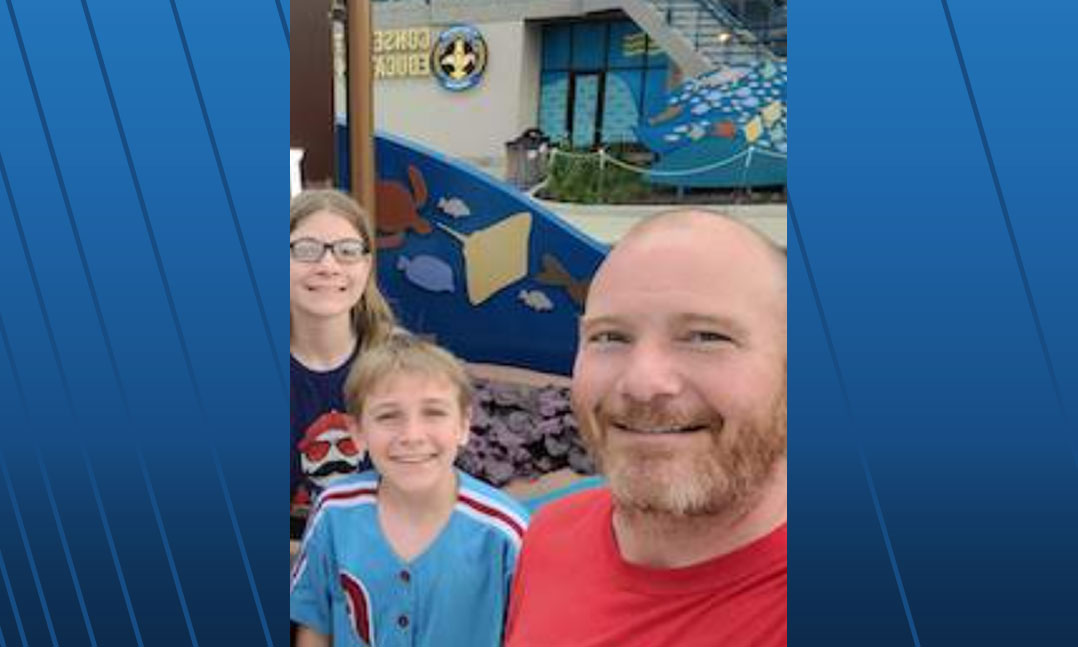Robert Soden, 45, lives in Kansas with his wife, Jane, and their two sons, Kaleb and Aiden. He enjoys playing sports in the backyard with his boys, but after 21 years in the Marine Corps, it is not always easy.
His service-connected injuries include hearing loss, back issues, headaches, numbness in his leg and a broken ankle and fingers.
 Marine Corp Veteran Robert Soden“Daily living is not the same,” Soden said. “I have a back implant because of the pain, I can’t do the exercises I once did, and it’s tougher to play sports with the kids.”
Marine Corp Veteran Robert Soden“Daily living is not the same,” Soden said. “I have a back implant because of the pain, I can’t do the exercises I once did, and it’s tougher to play sports with the kids.”
Some days, the headaches and pain are so severe Soden is unable to be with his family. Instead, he stays in his room resting and icing his back. Soden is grateful for the support he has received through the VFW’s National Veterans Service (NVS) program and a proactive service officer who realized he would need help before he did.
“Gunnery Sergeant Schroeder used to be attached to the unit I served in. Before I retired, he held a few classes to inform us of our rights when we got out,” Soden said. “He gave me his phone number and let me know that I will have questions and to not be afraid to ask. As my retirement approached, he set up meetings.”
Fellow Marine and VFW Accredited Service Officer Todd Schroeder explained to Soden and others in his unit that it did not matter whether they served for a few years or 20 — they were entitled to benefits. And when it came time, Schroeder helped Soden receive a 90% disability rating so he could access the support he had earned.
Soden realizes that not all service members are fortunate enough to cross paths with someone as helpful as Schroeder. He encourages them to think ahead and advocate for themselves.
“If it hurts, see a doctor and put it in your record. I would tough things out because I never wanted to be the weak link, but that is only a stereotype,” he said. “There is no shame to be seen by a doctor, and when you do, make sure you get everything documented.”
As Soden continues to manage his service-connected injuries, he stays in touch with Schroeder, speaking with him almost weekly. Soden feels fortunate for the assistance but also knows it is largely up to individual veterans to get and stay well.
“I am very lucky to have such a great service officer, but always remember that the only person who can take care of you is you,” he said. “There is plenty of support out there, but you have to ask for help to receive it. Gunnery Sergeant Schroeder was there for me, but there was work I had to do to help myself. So make sure to look in the mirror and take care of yourself.”
Learn more about the VFW's National Veterans Service (NVS) program.